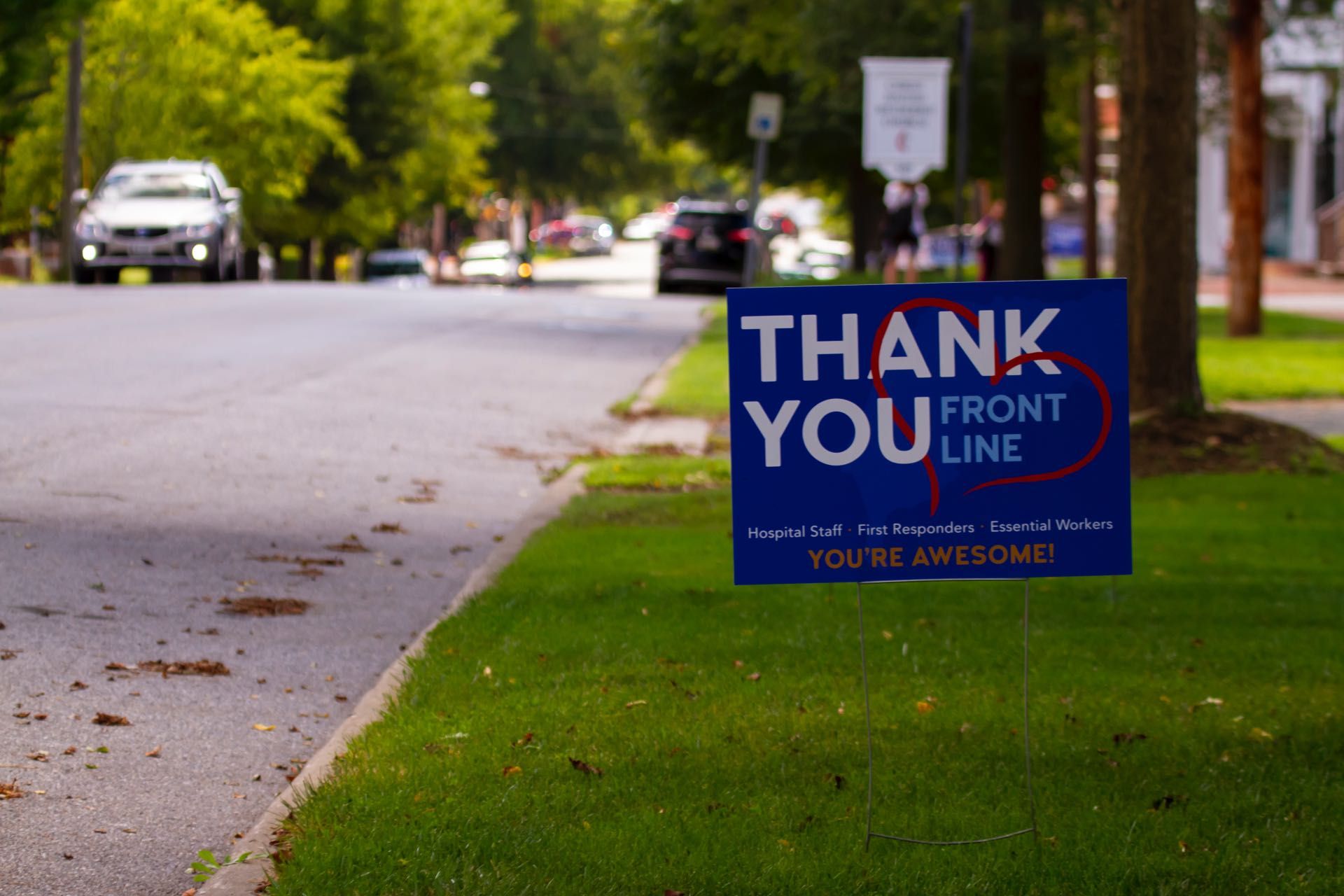Top Class Actions’s website and social media posts use affiliate links. If you make a purchase using such links, we may receive a commission, but it will not result in any additional charges to you. Please review our Affiliate Link Disclosure for more information.
Canadians across the country have waged major class action lawsuits against long-term care homes throughout the COVID-19 pandemic. Negligence is a key claim in the class action lawsuits, but proposed Ontario legislation is threatening to encumber the long-term care COVID-19 justice efforts.
Bill 218, Supporting Ontario’s Recovery Act, 2020 is currently before the Legislature, in second reading. According to the Ontario Government, the Act protects workers and organizations in health care, retail, charities and non-profits, as well as coaches, volunteers and minor sports associations from liability where they “make an honest effort to follow public health guidelines and laws relating to exposure to COVID-19.”
Problematic Bill Allows Negligent Nursing Homes to Get Off “Scot Free”
Lad Kucis, a certified specialist in health law and partner at Gardiner Roberts LLP, says that the Bill does not set a high bar “in terms of what constitutes a good faith effort.”
The good faith effort standard is “extremely problematic, ambiguous language,” according to Melissa Miller, certified specialist in elder law.
“That could not be more subjective,” Miller, who is a partner at Howie, Sacks and Henry LLP told The Law Times. “It invites just about any excuse out there for an owner and operator of a nursing home to get off scot free.”
This could be especially problematic when the proposed legislation is weighted against the enormity of Ontario’s COVID-19 devastation among its long-term care homes: As of August, 96 Ontario long-term care homes have been targeted in class action lawsuits, alleging negligence, overcrowding, abuse, lack of care and more.
Bill 218 Explained
Section 2 of Bill 218 provides that no cause of action may arise against any person as a direct or indirect result of an individual being or potentially being infected with or exposed to COVID-19 on or after March 17, 2020 as a direct or indirect result of an act or omission of the person where, at the relevant time, the person acted or made a good faith effort to act in accordance with:
- Public health guidance relating to COVID-19 that applied to the person, and
- Any federal, provincial or municipal law relating to COVID-19 that applied to the person; and
- The act or omission of the person does not constitute gross negligence.
If the legislation is passed, proceedings directly or indirectly based on such negligence claims will be barred from being brought before an Ontario court.
Ontario’s Attorney General Doug Downey indicated that after listening to the “concerns of Ontarians, we want to ensure people can seek redress against gross negligence, intentional misconduct and bad actors who fail to make an honest effort to follow COVID-19 guidance and laws.”
However, he also noted that the government aims to provide protection to the “hard-working women and men who make essential contributions to our communities, from frontline health care workers to people coaching minor sports teams, to those keeping our supply chain moving, to people volunteering at the local food bank or those simply showing up for work each day despite the unprecedented challenges of COVID-19.”
If passed, the Supporting Ontario’s Recovery Act, 2020 will provide targeted protection for those who are making an “honest effort” to follow public health guidelines and laws, and will cover health care workers and institutions, frontline workers who serve the public, including grocery stores, restaurants and retail stores, among others.
British Columbia and Nova Scotia already have legislation in place to ensure the protection of workers supporting communities during the COVID-19 pandemic.
COVID-19 Standard of Conduct: “Good Faith Effort”
Bill 218 defines “good faith effort” as including “an honest effort, whether or not that effort is reasonable.” What exactly constitutes a “good faith” or “honest” effort will likely be a fact-specific determination, legal experts surmise.
The “good faith effort” determination may, indeed, be a focal point of many COVID-19 class action lawsuits, given the multitude of potential considerations.
For example, a recent Ontario long-term care class action lawsuit accuses nursing home operators of negligence as well as breach of fiduciary duties and Charter breaches due to slow COVID-19 responses that put residents’ lives in danger. Questions abound as to which claims will be barred by the new bill, or whether certain actions will not be protected, because they were due to gross negligence.
Gross negligence requires a higher level of misconduct than ordinary negligence. The Supreme Court of Canada defined it as a very marked departure from the required standard of care or a “very great negligence.” Accordingly, many long-term care homes that implemented measures with the intent of following public health guidance, would likely not be found to have been grossly negligent, even where those measures were insufficient.
As previously mentioned, the new Ontario proposed legislation is not the first of its kind. British Columbia and Nova Scotia have established similar COVID-19 bills. However, Bill 218’s good faith effort threshold is a seemingly lower standard of conduct compared to that required under comparable legislation in other provinces.
Who Will Be Protected by Bill 218?
If adopted, Bill 218 would apply broadly to any acts or omissions by a “person”, whether they are providing essential services or not. In the proposed legislation, a “person” is defined as any individual, corporation or other entity, including the Ontario government.

Importantly, Bill 218 would apply retroactively. Any existing proceeding that is directly or indirectly based on an act or omission protected under the proposed law, that occurred on or after March 17, 2020, will be deemed to have been dismissed, without costs, on the day Bill 218 comes into force. Therefore, the numerous long-term care class action lawsuit filings submitted before Bill 218 comes into force will potentially fail once the law is enacted.
Implications For Businesses
Although many Ontarians oppose Bill 218, including the Ontario Health Coalition, which opposed these measures for long-term care and retirement homes, business owners welcome these new protections.
But, what does Bill 218 actually mean for businesses in Ontario and how can businesses ensure they are protected under the bill? Businesses operating in Ontario during the pandemic will be protected from liability where the aforementioned criteria are met, namely, “good faith” and “honest” efforts are made to act in accordance with public health guidance and federal, provincial or municipal COVID-19 rules.
Although the exact standard of “good faith” or “honest” efforts is not entirely clear, organizations and businesses can take steps to help ensure they benefit from Bill 218’s protections.
Such measure can include monitoring and implementing COVID-19 guidance from all three levels of government and applicable regulators. Furthermore, businesses should document these efforts and any other measures implemented to limit individuals’ risk of COVID-19 exposure.
According to some, the broad nature of these protections may incentivize insurers to offer liability insurance to organizations for pandemic-related risks, as has been contemplated by the American Bar Association in relation to similar U.S. legislation.
Business pandemic insurance denials have been, and continue to be a major issue across Canada. In fact, if you are a business owner who was denied business interruption insurance coverage due to COVID-19 closures, you could join a class action lawsuit free of charge by clicking here.
Bill 218 Exceptions and Concerns
Bill 218 does not provide a general protection regardless of the circumstances of the case. The proposed legislation comprises key exceptions that seek to maintain the right of Ontarians to take legal action against those who willfully, or with gross negligence endanger others.
Bill 218 does not apply to:
- Infections or exposures that occurred while a business was required, by law, to be closed; and
- Causes of actions which relate to exposure or infection of a worker or employee that occurred in the course of employment.
Despite the exceptions from liability, Ontario seniors’ advocates are expressing their concerns regarding protecting the legal rights of those who have been harmed as a result of COVID-19 exposure in long-term-care homes since March.
Members of the Advocacy Centre for the Elderly, as well as the Ontario Health Coalition responded to the proposed bill, saying that if passed, Bill 218 would make it increasingly difficult for families of loved ones who have suffered after being exposed to or infected with COVID-19 to sue.
Natalie Mehra, executive director of the Ontario Health Coalition, told Toronto.com that they hope Bill 218 will be defeated. “Elderly people in long-term care have suffered enormously as a result of negligence, incompetence and indifference by profit-seeking corporations that have engaged in egregious practices while at the same time paying out tens of millions of dollars a month in profits to their shareholders,” she added. “This is morally reprehensible.”
What do you think about Bill 218? Is it fair to COVID-19 long-term care home victims? Share your thoughts with us in the comments below!
ATTORNEY ADVERTISING
Top Class Actions is a Proud Member of the American Bar Association
LEGAL INFORMATION IS NOT LEGAL ADVICE
Top Class Actions Legal Statement
©2008 – 2024 Top Class Actions® LLC
Various Trademarks held by their respective owners
This website is not intended for viewing or usage by European Union citizens.


















One thought on Ontario’s Bill 218 to Stop COVID-19 Negligence Class Action Lawsuits
You have the right to make a citizens arrest on anyone in Canada wishing to do you harm or break the law.